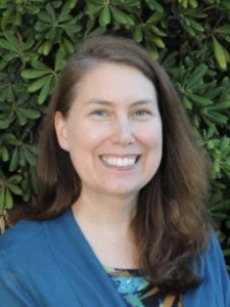
Home Department: Teaching, Learning, and Sociocultural Studies (TLS)
Area Chair in Technology in Second Language Teaching Minor/Graduate Certificate
SLAT Areas of Specialization: Instructional Dimensions of L2 Learning, Sociocultural Dimensions of L2 Learning
Jill Castek is Professor of Literacy, Technology & Bi/multilingual Learners & STEM Education in the Department of Teaching, Learning, and Sociocultural Studies in the College of Education. A former teacher and literacy specialist, Dr. Castek has over a decade of experience working to support students’ reading and literacy development in early and middle grades. She taught Reading Recovery, led family literacy programs, and worked with English language learners and community literacy programs in the Bay Area of California.
Dr. Castek has a PhD from the University of Connecticut in Education Psychology emphasizing Cognition and Instruction with a focus on Literacy and Technology. She was a Neag fellow in the New Literacies Research Lab and completed a post-doc at the University of California, Berkeley working with the Learning Design Group at the Lawrence Hall of Science.
Dr. Castek was part of a cluster hire made up of multidisciplinary colleagues from across the University of Arizona to advance research in Technology Enhanced Language Learning (TELL). She is the Graduate Advisor for the Second Language Acquisition and Teaching (SLAT) program. SLAT foregrounds a strong interdisciplinary approach to preparing future leaders in the field of second language acquisition at all levels of instruction.
Drawing from theories on literacy and language, as well as research from education, new literacies, and digital literacies, her courses address the intersection of disciplinary literacy, new media, and learning. These courses explore the development of literate capacities, in both print and digital forms, in classrooms and community learning spaces. Dr. Castek is an elected board member of Literacy Connects, a Tucson non-profit that connects learners of all ages through literacy and creative expression.
Dr. Castek is the Co-Director of the Digital Innovation and Learning Lab (DIALL). DIALL inspires innovations in teaching and learning among College of Education faculty, K-12 educators, and community partners. DIALL efforts encourage creative processes and products through digital, visual, and audio storytelling that connects learning with self-expression at the individual and community levels. Innovative DIALL programming promotes greater workforce readiness for educators and their students by bolstering their ability to collaborate and tackle complex problems with creative, innovative, and nimble higher-level thinking.
Dr. Castek is a Co-PI on a 4-year National Science Foundation Research Coordination Network Grant called Making Equity Network: Coordinating Research for Critical Making Cultures and Practices. This network brings together a community of collaborators from multiple stakeholder groups including academia, public libraries, museums, community based organizations, non-profits, media makers and educators working at the intersection of equity and interdisciplinary making in STEM education. The network’s efforts broaden STEM participation through pursuing common research questions, sharing resources, and incubating emergent inquiry across formal and informal learning, in urban and rural locations, serving groups underrepresented in STEM.
In 2017, Dr. Castek completed a grant from the Institute for Museum and Library Services (IMLS) focused on digital problem solving. This research was designed to improve library practices, programs, and services for adult library users—especially economically vulnerable and socially isolated adults, seniors, and English learners who use the library as a main Internet access point. This work builds on a previous three-year study focused on digital literacy acquisition processes also funded by IMLS.
Prior to joining the faculty at the University of Arizona, Jill was the Director of the Literacy, Language, and Technology research group at Portland State University. Dr. Castek provides leadership in the field of literacy as an Area Chair for the Literacy Research Association (LRA) and as a reviewer for the International Literacy Association’s Reading Research Quarterly, Journal of Adolescent and Adult Literacy, and the Reading Teacher.
![]() Download CV (437.27 KB)
Download CV (437.27 KB)

